c and c++ are two of the most popular programming languages used all over the world. while c is a core language, c++ is an extension of the c language. The possibilities are endless with these languages, which is why businesses of all shapes and sizes use them due to their scalability and feasibility.
As languages stay on top, the number of people learning them is increasing by the minute. if you want to learn c and c++ then starting everything with a book is a great idea. we have selected a list of the 5 best books c & amp; top 5 c++ books recommended by the programming community. Regardless of your level of programming, you will find a book that suits your needs.
You are reading: Best books on c
top 5 c programming books (recommended by the programming community)
1. absolute beginners guide to c programming
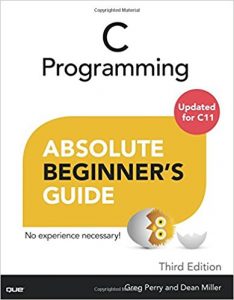
The book has been curated by renowned authors and publishers of several prominent programming books over the years. Greg Perry has over 75 books to his name, all related to computers and programming. Meanwhile, Dean Miller has over 20 years of publishing experience and has shaped such best-selling books as ‘Teach Yourself in 21 Days’ and the ‘Unleashed’ series of books.
2. the c programming language (2nd edition)
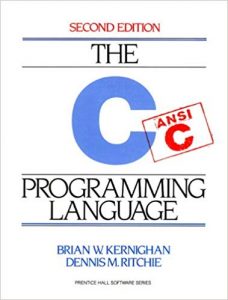
The book is a collaborative work by Kernighan and Ritchie, the latter being the creator of C and both considered pioneers in computer programming. This book acted as a language specification for many years after its release, introducing various language features and covering the following ANSI C standard. clearly and briefly explains concepts such as types, operators, expressions, control flow, and functions. while it does cover the concepts, it simply explains their uses rather than what they are. therefore, a basic understanding of programming is necessary before beginning this book. the second edition of the book published in 1988, where the authors stated that they had improved the descriptions of critical concepts and features. the new edition also has new examples, while the old ones have been refined to increase the learning mechanism.
You can buy the book here.
3. learn c the hard way
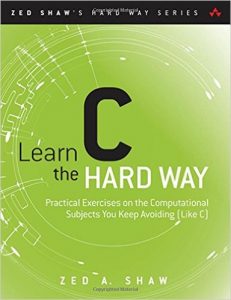
The book has made a name for itself in the world of c programming because of the code exposure it gives its readers, not just the code needed for small programs, the book includes real code, something you can see in projects on github. the reader will have to work through all the code one by one to understand c programming, all with little or no hands. The book includes 52 brilliantly designed exercises created to help you master rigorous defensive programming techniques, a skill that will help you in any programming language you take up in the future.
In addition to programming concepts such as files, linkers, arrays, strings, functions, memory allocation, libraries, data structures, stacks, and queues, the book also discusses skills such as defensive coding, debugging, automated testing, illegal access to the memory. and breaking and hacking one’s code. The book comes with a DVD that contains more than 5 hours of video lectures and tutorials that perfectly complement the book.
You can buy the book here.
4. head first c
See Also: Top 15 Books for Molecular Biology
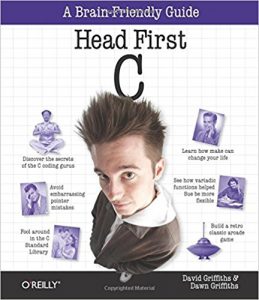
The book discusses vital basic and advanced areas and concepts, including the basics of the C language, pointers, dynamic memory management, multithreading, and network programming. The book mimics the style and content of a college-level course, making it a model textbook for students who want to learn C programming.
You can buy the book here.
5. c programming: a modern approach
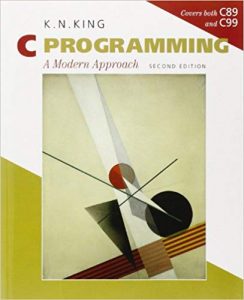
The first edition of the book, published in 1996, has a comprehensive and detailed approach by the author that made the book accessible to a wide range of readers, from novice programmers to advanced students. The book was adopted by many educational institutions around the world as their primary C programming text, making the first edition one of the leading C programming textbooks for over ten years. the second edition was released in 2008 and carefully preserved the book’s popular features while updating it with new standards. It also adds many new exercises and projects, along with extensive revisions and updates to summarize most of the C concepts in one textbook. It is one of the best c books for beginners.
You can buy the book here.
top 5 c++ programming books (recommended by the programming community)
1. c++ primer (fifth edition)
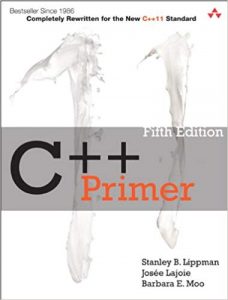
The fifth edition continues the legacy of the previous four editions of keeping the material up to date with the latest classifications. the book was also updated to their recently released c++11 standard. The book introduces the C++ library from the beginning and highlights its standard features and facilities to start your journey to becoming a successful C++ programmer. Previous editions were packed with examples to help keep a theory in a practical focus, and the new edition does the same. Many old examples have been updated, and at the same time several new examples have also been added to the book. Thousands around the world prefer this book (and its previous editions). it was considered a valuable resource for both beginners and experienced programmers. the book is one of the best c++ programming books.
You can buy the book here.
2. Effective Modern C++: 42 Specific Ways to Improve Your Use of C++11 and C++14
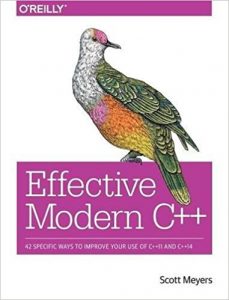
Over 300 pages long, the book discusses various topics related to the latest versions of c++. Some of these topics include the pros and cons of brace initialization, smart pointer creation functions, the difference between std::atomic and volatile along with their use in C++, and the relationship between std::move and std::forward. In addition to discussing the language, the book also sheds light on the techniques that can be followed to write clear and correct code, and how old programming practices require some revision for software development in today’s times.
You can buy the book here.
3. the c++ programming language (4th edition)
See Also: The 8 best Kate Atkinson books, according to our Books Editor
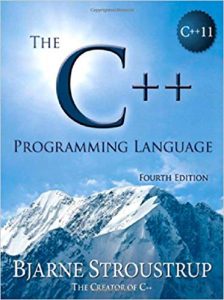
The fourth edition of the books is updated to include c++11 and its features, standard library, and fundamental design techniques. Starting with the basics of C++, the book continues with the necessary C++ features such as structures, declarations, functions, unions, and enums. it then discusses abstract mechanisms such as classes, templates, and metaprogramming; and finally concludes with a discussion of c++11 and the standard library.
You can buy the book here.
4. Accelerated c++: practical programming with example
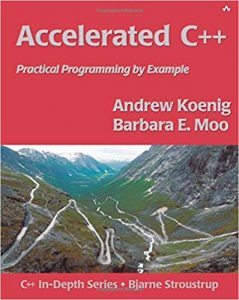
Accelerated C++ takes an innovative approach to teaching c++ programming by suggesting that you don’t need c programming skills to learn c++. some of the topics covered in the book are handling strings, arrays, iterators, class design, pointers, operator overloading, and inheritance.
You can buy the book here.
5. programming: principles and practice using c++
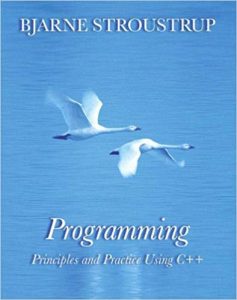
The book begins with a description of how to perceive and understand the content of this book, as it has many exercises and discussions that can confuse a complete beginner. then briefly discusses programming and computer science and how software connects people and computers. Moving on to C++ programming, the reader is given an introduction to basic concepts such as objects, types, declarations, functions, errors, arrays, classes, and I/O, among many others. The book is packed with problem exercises and examples to help you grasp concepts quickly and effectively.
The author of the book is the distinguished bjarne stroustrup, the designer and original implementer of the c++ programming language released in 1985. at bell labs and at&t labs-previously researched. is known as one of the best books to learn to program in c++.
You can buy the book here.
conclusion
To conclude, learning c is a good decision if you want to build a career in programming. The language introduces you to programming concepts such as variables, data types, methods, functions, loops, arrays, strings, and more. After learning C, you may be encouraged to learn C++ as the concepts are almost the same, but C++ is an extension of C. Learning C or C++ can land you in jobs like game development, system administrator, and more. If you want to check out C Interview Questions and C++ Interview Questions if you are preparing for a programming interview.
let us know which book you prefer to read in the comments section.
people are also reading:
See Also: The Book Doctor is In: How to Clean Books
- best php books
- best c books (recommended by the programming community)
- best java books for beginners and advanced programmers
- best javascript books
- best python books
- 10 best data science books
- 10 best machine learning books